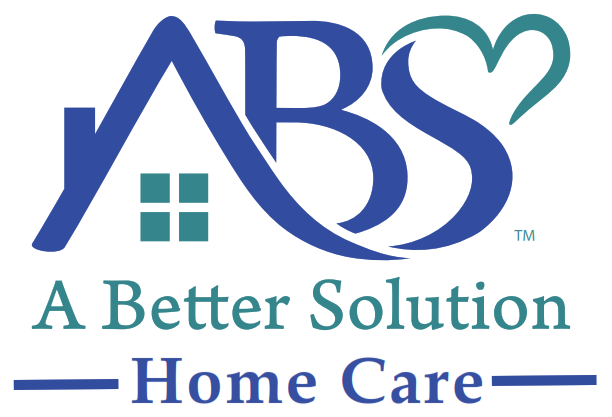
Home Care Staffing Shortages | How They Impact Home Care Services
Abs
08-11-2025
The healthcare staffing landscape in 2025 is defined by a growing paradox: demand for care continues to surge, especially from aging populations, yet staffing remains persistently inadequate. With adults aged 65 and older expected to surpass 77 million in the U.S., the need for skilled care, both in facilities and at home, is at an all-time high. Yet providers across the system face chronic under-staffing, driven by post-pandemic burnout, staff retiring early or leaving for better opportunities, and failed recruitment pipelines. This imbalance has cascading effects: patient care delays, strained morale, scheduling chaos, and high turnover all undercut quality and consistency. Home care is particularly vulnerable, as aging-in-place becomes the norm and systems are stretched thin trying to staff increasingly decentralized services.
In this blog, we’ll explore how home care staffing shortages, already part of the broader healthcare staffing crisis, impact seniors, families, and agencies, and what practical solutions are emerging to turn these challenges into opportunities.
Understanding the Home Care Staffing Shortage
The healthcare sector is facing a workforce shortage unlike anything in recent history. According to McKinsey’s, the world could be short at least 10 million healthcare workers by 2030, with some estimates exceeding 78 million. Even in countries like the United States, which McKinsey categorizes as “worker-advantaged,” unfilled positions persist, particularly in frontline and in-home roles. For home care staffing, this gap is even more visible because demand for home care services is surging while supply remains tight. This shortage affects seniors who depend on daily support, families trying to balance work and caregiving, and agencies striving to meet rising demand.
What the shortage means for home care
A home care staffing shortage occurs when the number of qualified caregivers available cannot meet the needs of clients requiring personalized home care services. This is not simply about the total workforce size. It's about matching trained professionals to the right clients, locations, and care needs.
The numbers and why they matter
McKinsey’s research highlights that even with aggressive interventions, only about 5.6 million workers could be added globally by 2030, leaving much of the shortfall unresolved. The shortage in the U.S. home care sector is compounded by the senior care staffing crisis, as more Americans live longer with chronic conditions, demand for in-home caregiver availability rises sharply.
Key drivers of the home care staffing shortage
- High turnover among caregivers: Caregiver turnover rates remain high due to low pay, limited career growth, and unpredictable schedules.
- Burnout from pandemic workloads: Many in-home caregivers faced prolonged stress and health risks, prompting exits from the profession.
- Low supply of experienced caregivers: Training pipelines are insufficient to keep up with home care workforce demand, especially in rural and underserved areas.
- Aging population and home care needs: An increasing number of older adults are opting for elderly care at home, further intensifying the shortage.
How Home Care Staffing Shortages Affect Families and Clients
Reduced access to in-home support
One of the most visible impacts of home care staffing shortage is reduced in-home caregiver availability, meaning families may wait weeks or months to secure help. For those who rely on benefits of home care services such as assistance with mobility, bathing, or medication, these delays can be detrimental.
Shorter or inconsistent shifts
Home care staffing shortages often force agencies to reduce hours or rotate multiple caregivers for a single client. This disrupts trust, affects care quality, and reduces the benefits of home care for seniors who thrive on routine and familiarity.
Delays after hospital discharge
Hospital-to-home transitions are delayed due to home care service delays and broader hospital-to-home staffing challenges, leading to longer hospital stays or risky early discharges. These delays can hinder recovery and increase healthcare costs.
More pressure on families
When paid care isn’t available, families end up taking care of elderly parents at home, juggling jobs and caregiving duties. While the benefits of home senior care are well-documented, providing them without professional help is exhausting and unsustainable.
Effects on Home Care Agencies
Scheduling and resource strain
For agencies, home care agency staffing shortages create daily logistical challenges. Coordinators must constantly reshuffle schedules to cover last-minute absences while still trying to match caregivers with clients based on skills, location, and preferences. This reactive approach consumes valuable administrative time and can lead to mismatches that reduce the quality of home care services.
Rising labor costs and retention challenges
When there’s a limited pool of home health care staffing candidates, agencies are forced to increase wages, offer sign-on bonuses, and provide costly incentives. These short-term fixes help fill roles but make budgets harder to balance. On top of this, caregiver retention challenges remain, without a supportive work culture and manageable caseloads, even the most dedicated staff may leave, contributing to the in-home care workforce crisis.
Limits on growth and innovation
Even when market demand for the benefits of home care rises, agencies cannot expand programs if they lack enough caregivers to meet client needs. This stalls innovation in specialized services like dementia care or post-surgical rehabilitation, areas that could greatly improve outcomes for clients but require consistent and highly trained staff.
Solutions That Work in Home Care
Workforce investment and training
Addressing caregiver recruitment issues starts with building more robust training programs, offering tuition assistance, and creating mentoring opportunities. Agencies that invest in upskilling their in-home caregivers not only improve service quality but also boost staff morale, a key factor in long-term retention.
Better pay and flexible scheduling
Improved compensation packages and flexible hours are essential parts of home care staffing solutions. By providing predictable schedules and paid time off, agencies can reduce burnout and turnover while attracting new talent into the health care staffing pipeline.
Partnering with staffing agencies
Collaborating with trusted health care staffing agencies allows home care providers to secure qualified professionals on short notice. This can be especially valuable during flu seasons, holidays, or sudden spikes in demand when regular staffing models cannot cope.
Leveraging technology for efficiency
Digital tools can help coordinate caregivers more effectively, reducing travel time between clients and improving the match between skills and needs. For example, AI-driven scheduling systems can help maximize each caregiver’s availability, ultimately making the most of existing workforce capacity.
How A Better Solution Home Care Helps Families During the Shortage
Flexible supplemental staffing
A Better Solution Home Care provides supplemental caregiver support to bridge the gap when agencies or families face shortages. Our Healthcare Staffing services are designed to ensure consistent coverage and reliable care.
Bridging agencies, facilities, and homes
We coordinate with agencies, healthcare facilities, and private clients to maintain continuity of at-home care staffing and the delivery of personal care services at home.
Trained, on-demand caregivers
A Better Solution Home Care recruits, trains, and retains experienced professionals, ensuring families experience the benefits of home care for seniors without interruptions, even during a staffing crisis.
Urgent Action Needed
The home care staffing shortage is more than a workforce problem. It’s a direct threat to the health, dignity, and independence of seniors. By investing in training, improving retention, and leveraging partners like A Better Solution Home Care, we can safeguard the benefits of home care for generations to come.
If you need dependable Home Care Services or Healthcare staffing support, contact A Better Solution Home Care today to learn how we can help.
